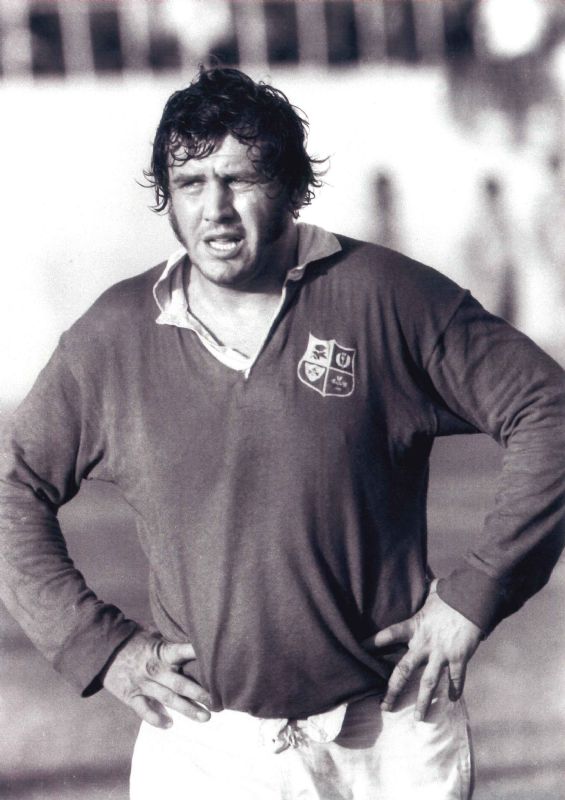- Home
- News, Articles & Reviews
- All Sport
- Cricket
- Cycling
- Football
- Golf
- Horse Racing
- Rugby Union
- Angling
- Archery
- Athletics
- Basketball
- Bowls
- Boxing
- Croquet
- Dance
- Darts
- Diving
- Duathlon
- Equestrian
- General
- Gymnastics
- Hockey
- Martial Arts
- Modern Pentathlon
- Motorsport
- Mountain Biking
- Netball
- Padel
- Parasport
- Polo
- Powerboating
- Powerlifting
- Rowing
- Rugby League
- Running
- Scuba Diving
- Shooting
- Skiing
- Skittles
- Snooker
- Squash
- Swimming
- Table Tennis
- Tennis
- Triathlon
- Tug of War
- Walking
- Walking Football
- Water Polo
- Weightlifting
- Wheelchair Tennis
-
Sport
- All Sport
- Cricket
- Cycling
- Football
- Golf
- Horse Racing
- Rugby Union
- Angling
- Archery
- Athletics
- Basketball
- Bowls
- Boxing
- Croquet
- Dance
- Darts
- Diving
- Duathlon
- Equestrian
- General
- Gymnastics
- Hockey
- Martial Arts
- Modern Pentathlon
- Motorsport
- Mountain Biking
- Netball
- Padel
- Parasport
- Polo
- Powerboating
- Powerlifting
- Rowing
- Rugby League
- Running
- Scuba Diving
- Shooting
- Skiing
- Skittles
- Snooker
- Squash
- Swimming
- Table Tennis
- Tennis
- Triathlon
- Tug of War
- Walking
- Walking Football
- Water Polo
- Weightlifting
- Wheelchair Tennis
We are hiring! Please click here to join our growing magazine delivery team in Gloucestershire!
Areas
Sport
Tags
Archive

Back in the Day: Mike Burton – Gloucester, England and British Lions
All Areas > Sport > Rugby Union
Author: Roger Jackson, Posted: Friday, 23rd June 2017, 13:30
Mike Burton was a colossus on the rugby field and he has been a colossus off it since retiring from playing almost 40 years ago.
The one-time Gloucester, England and British Lions prop is a hugely successful businessman and continues to be a big noise in rugby where he is heavily involved with the Barbarians.
Not that he was making much noise when he spoke to The Local Answer.
“I must apologise if I sound a bit quiet,” he said, “but I was at the FA Cup final with my nine-year-old grandson Edward a couple of days ago. We’re both Arsenal fans and we didn’t stop singing and shouting. We had an absolutely brilliant day.”
Burton’s love for all things Arsenal began at a very early age. Born in Maidenhead in December 1945, he was a regular visitor to Highbury in the 1950s from where he has many happy memories.
“Arsenal used to have a mascot for every home game,” he said. “He’d be there for the toss of the coin before the start of the game and as a youngster I remember always wanting to be a mascot.”
One game in north London, however, left an indelible mark on the young Burton.
“It was the game against Manchester United in 1958,” he said. “They won 5-4 and they were brilliant. There was Duncan Edwards and all those other great players. I remember them playing in white shirts with red piping.
“Three days later Duncan Edwards and a lot of the others were killed in the Munich air crash and I remember it had a profound effect on me. They were such brilliant players.”
It was about this time that Burton, then aged 12, left Berkshire to move to Gloucester and so began a love affair with rugby that endures to this day.
Not that he’d had anything to do with an oval ball in his formative years.
“I liked to do anything involving sport,” he said. “We’d put jumpers down for goalposts and play football and a couple of stumps in the ground if we wanted to play cricket.
“I just enjoyed playing sport so when I moved to Gloucester, rugby seemed like a natural thing to get involved in.”
And he was certainly in the ideal location, living in Longlevens little more than a long Micky Booth pass from Kingsholm.
Mind you, he had a few teething problems at the start of his rugby life at Longlevens Secondary Modern, which is 400 yards from Longlevens Rugby Club in Longford Lane and a mile as the crow flies from Kingsholm.
“I remember looking at it and thinking, ‘I want to be a number 10’,” Burton said. “So I told my schoolteacher Dennis Williams and he said, ‘Burton, you’ll be a prop when you start and you’ll be a prop when you finish’ and he chucked me the number 3 shirt.”
It was a decision Burton has never regretted and he added: “I just wanted to be in a team. It was the social aspect that appealed to me, being part of something.”
While the young Burton was soon enjoying himself off the field, he was making great strides on the field as well.
By the age of 15 he was playing for Longlevens 4ths and within months he had been catapulted into the 1st XV still a few weeks short of his 16th birthday.
“There was a trainer at Longlevens called Bumper Humphries,” remembers Burton. “He instilled a great set of values into us about how to train.
“The sessions were run a bit like an assault course but he wanted us to be fit enough to play well and not the other way round. He was a great man.”
It wasn’t only the training that was tough.
“The matches were hard,” said Burton. “I was still very young and I was playing in the front row. That’s very different from being young and playing in the back row!”
It may have been a hard school but Burton was a quick learner and he was soon picking up his first winner’s medal in a Longlevens shirt.
“It was the North Gloucestershire Combination 2nd XV Cup,” he said proudly. “I can’t remember the score but we beat Tredworth in the final at Kingsholm.
“I remember thinking how big the pitch was and that we were playing in front of a crowd. People had come to watch us and I found the whole thing a wonderful experience. I’ve still got the medal to this day.”
Such was Burton’s progress that he was never going to remain at Longlevens for long and by the age of 18 he was in the Gloucester team and rubbing shoulders with the likes of Kingsholm greats Jack Fowke and Peter Ford.
”They were good, principled, hard men,” said Burton. “They just got on with the game and never squealed. If things got tough they just rolled up their sleeves.”
Those were the days when Gloucester were renowned all over the country for having a formidable pack and it was something that Burton was only too pleased to buy into.
“The underlying principle was that any team that played us always had respect for our forwards,” he said. “We had our own style although it was never defined as such.
“We had a powerful pack, two centres who could tackle – I played my whole career with John Bayliss at inside centre - and a goalkicker.
“We’d dominate teams up front, score three, six, nine points; then they’d score a brilliant try but we’d always be in it. We played a little bit more direct than the other teams but we were a good side and we went 150 games without losing at Kingsholm.”
Two of the big reasons for Gloucester’s success in those days were Fowke and Ford and Burton is fulsome in his praise for them.
“Jack Fowke was a quiet unassuming man,” Burton said. “Everything he did was for the good of the team. If he had a knock he’d just get on with it, he was that type of man.
“Peter Ford patrolled the lineout with ruthless efficiency. But he was also a scavenging back row forward who all scrum-halves feared.”
John Watkins was another who played the ‘Gloucester way’. “He’d win the ball and just run it back at the other team,” said Burton.
That was the way that Burton played, of course, but although uncompromising on the pitch he had an alert mind off it and is quick to appreciate players with other talents who have turned out in the cherry and white over the years.
“Richard Mogg made a big difference when he came to Gloucester,” said Burton. “He was an outstanding player. Then there was James Simpson-Daniel - I never saw him have a bad game.”
Others who impressed Burton the fan include Mike Teague - “He came to us from Gloucester All Blues as a skinny kid but what a player he became,” said Burton - and Phil Vickery, of whom he said: “He gave others a real hiding at scrums. I enjoyed watching him play.”
All four enjoyed some great times for Gloucester whether in the league or cup competitions.
Burton, of course, played in an era before leagues were introduced but he was a key member of the teams that won cup finals at Twickenham in 1972 and 1978.
“We worked very hard at our game,” said Burton, who captained the club for one season in 1975.
“We used to play every Wednesday and Saturday. On a Wednesday we’d be in Pontypool playing the British Lions front row and then on a Saturday we’d play Harlequins who all spoke as if they’d got plums in their mouths.
“And in between these games we’d all go to work too. I’m very proud of everything that we achieved. To get to two cup finals was very important for the club.
“They were big milestones and don’t forget in 1972 we were the first ever winners of the competition. Mike Nicholls was an inspirational captain.
“Since then we’ve won the World Cup with two Gloucester props and the club - like Arsenal - have always been in the top division. We never went the same way as clubs like Coventry and Richmond.”
Burton is still a regular spectator at Kingsholm and apart from the rugby he still enjoys catching up with team-mates from yesteryear.
“I always see a lot of the old players and they’re friends for life,” he said. One of those is former scrum-half Micky Booth who Burton refers to as “General Booth”.
“He knew the game backwards,” said Burton. “He’d stand behind the forwards and bark at us like a Corgi dog. He’d tell us we were all donkeys and that we should give him the ball so that he could play the game.
“And he was right. We’d win the ball and he’d thump it with his right foot down the other end of the pitch.
“It was a wonderful thing for the pack. We’d feed him and fly-half Terry Hopson the ball and they’d boot it downfield and set us up to attack.”
Booth played almost 500 games for Gloucester and is considered by many experts in the game to be one of the unluckiest players never to have been capped by England.
He was competing against Dickie Jeeps for the number nine shirt but Burton said: “How Boothy never got an England cap I just don’t know. Yes, he was up against Dickie Jeeps but there were a lot of players who got two or three caps and he didn’t get any.
“Dick Smith was another. He had 12 England trials and still didn’t get selected. He was better than some players who won 30 or 40 caps.”
And Burton has a theory as to why such deserving club players were being overlooked by England.
“I think the trouble was that in those days before all the motorways Gloucester was perceived to be a bit of scrubland west of Reading,” he said.
“It was much easier for the selectors to go and watch Wasps or Harlequins.”
Burton would at least go on to play 28 times for England including seventeen tests although his route into the national side did not happen overnight.
Some impressive performances for Gloucestershire in the county championship initially brought him to the attention of the men who matter when it came to handing out England caps.
“In those days the county championship was a higher level than club rugby,” recalls Burton. “It was harder and faster and presented you with different challenges.
“We’d go to Redruth and Hellfire Corner when we played Cornwall and when we faced Lancashire we’d be up against the likes of Bill Beaumont, Fran Cotton and Tony Neary.”
They may have been tough games but Burton was certainly up to the challenge. He was to go on to win four county championship titles and his performances in the early 1970s earned him a call-up to the Western Counties side to face the touring All Blacks.
That was the game that finally convinced the England selectors that he was worth a trial and the rest, as they say, is history.
“That game was pivotal,” said Burton, “because I scored a try against the All Blacks.”
So, what sort of try was it?
“If I told you I did three sidesteps and a cartwheel you wouldn’t believe me,” he laughed.
Nevertheless, it certainly wasn’t the worst try ever scored at Kingsholm.
“We were awarded a penalty on their 22-metre line,” said Burton. ”Our scrum-half John Cannon made it look as though we were going to kick at goal but he was always trying things and instead he took a quick tap penalty and gave me the ball.
“I somehow managed to scrape over after bashing my way through the All Blacks defence. That took some doing”
His England debut followed at the age of 26 against Wales at Twickenham on 15th January 1972.
His call-up came eight years after his Gloucester debut and Burton said he’d “worked very hard” to finally pull on an England shirt.
The game was not to have a happy ending for Burton, however, as Wales, who included the likes of JPR Williams, Gareth Edwards, Barry John and Mervyn Davies to name just a few, eased to a 12-3 win.
“Sandy Sanders was the new chairman of selectors and six of us were new caps,” said Burton. “It was too many.”
England weren’t the power in world rugby that they are today and although there were some good performances - a series win in South Africa in 1972 being a particular highlight - there were also a number of defeats.
Burton lost the first four and last six of his games for England - his final game was in 1977 - but in between times there were some excellent results including victories over Wales, Scotland and Australia at Twickenham.
The wins over Wales and Scotland in 1974. which followed a draw against France in Paris were particularly timely for Burton and his England team-mates with a British Lions tour to South Africa on the horizon that summer.
Burton was confident that he could cut it at the highest level if given the chance after defeating the Springboks on their own patch two years previously with England.
“It was a difficult at times with England,” admitted Burton, “but we still had six players on the 1974 Lions to South Africa - Alan Old, Fran Cotton, Chris Ralston, Tony Neary, Andy Ripley and me.”
That three-and-a-half month trip was to go down in Lions history as the Invincibles’ Tour as Willie John McBride’s men played 22 matches and came home undefeated.
Burton describes the tour as an “unforgettable life-changing experience”.
“To be an original selection on a Lions tour meant everything to me,” he said. “In 74 we only took 30 players so it meant you had to be one of the best four props in Great Britain.
“It was real 30-man effort to win the series. We played two games every week and some of those midweek games were wars.
“We played Free State, Transvaal and Northern Transvaal and they had some huge physical forwards.
“But we were powerful at scrum time and South Africa was not expecting that.
A year later he was back in the southern hemisphere - this time in Australia with England - but that tour does not hold such happy memories for Burton.
England had already lost the first Test in Sydney and went into the second Test in Brisbane a week later as serious underdogs.
Their task became almost impossible soon after the first whistle was blown in a match that was to become known as the ‘Battle of Brisbane’ because Burton was given his marching orders three minutes in for a late tackle on wing Doug Osborne, so becoming the first Englishman ever to be sent off in a Test.
“We went to Australia with an experimental team and got what we deserved,” admits Burton.” It was a ‘team for the future’ but we were beaten in the first Test and lost the second as well.
“We had a lot of our young lads in that squad and they hit the Bristol prop Barry Nelmes from the kick-off.
“I remember thinking that someone had to do something about it so I took it upon myself to take action.
“The problem was that the Australian referee - we didn’t have neutral refs in those days - saw it as retaliation and that was that.”
So, does Burton regret the sending off?
“No, never,” he said. “They called my actions “the Biff” but it’s an Australian term and they can call it what they want, at Gloucester that was the way we dealt with miscreants.
“I’ve never felt bitter about it. The crowds over there used to mock and abuse us calling us ‘Poms’ in a derogatory way and it was my way of dealing with a certain situation. Anyway I always shook hands with the other bloke at full time and I’m good friends with the Aussie lads to this day.
“At the time I didn’t think the sending off was the end of my life and it’s not something I ever think about. It’s had no impact on my life and I certainly do not dwell on it.”
Interestingly, Burton sees the England shirt he wore against Australia every day. It’s in a frame and hanging on a wall in his office at Quedgeley.
Burton recently concluded a 10-year spell on the board of governors at Hartpury College, something he “enjoyed immensely” .
In addition to a wide range of business interests he sits on the management board of the Barbarian Football Club and works hard on behalf of the club. He enjoyed playing for the invitation team in the 1970s.
“The Barbarians remain the invitation team that every player wants to play for,” he said. “In recent times we have found a way to persuade the world’s leading clubs and provinces to release their players temporarily to represent the Barbarians.”
Burton is contributing his considerable experience to make sure that the concept of the Barbarians continues as an eccentric part of the union game.
He was at Twickenham for the Barbarians versus England game in May before heading to Ireland for the game against Ulster .
And there are plans for further games this autumn. The Barbarians are finalising arrangements for an October trip to Australia for a two-game tour before returning to this country in good time to take on the All Blacks at Twickenham on November 4th, followed by a match against Tonga.
All this keeps Burton busy and rugby continues to be a major part of his life and as he says: “I’ve loved every minute of it.”Copyright © 2024 The Local Answer Limited.
Unauthorized use and/or duplication of this material without express and written permission from this site's author and/or owner is strictly prohibited. Excerpts and links may be used, provided that full and clear credit is given to The Local Answer Limited and thelocalanswer.co.uk with appropriate and specific direction to the original content.More articles you may be interested in...


© 2024 The Local Answer Limited - Registered in England and Wales - Company No. 06929408
Unit H, Churchill Industrial Estate, Churchill Road, Leckhampton, Cheltenham, GL53 7EG - VAT Registration No. 975613000You are leaving the TLA website...
You are now leaving the TLA website and are going to a website that is not operated by us. The Local Answer are not responsible for the content or availability of linked sites, and cannot accept liability if the linked site has been compromised and contains unsuitable images or other content. If you wish to proceed, please click the "Continue" button below:




